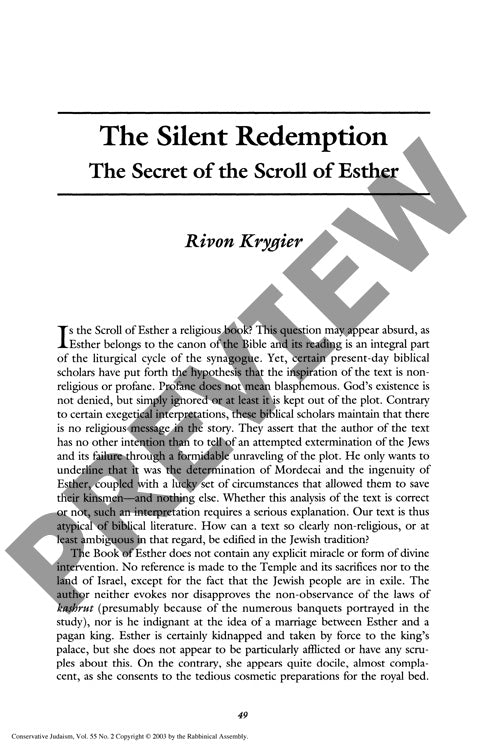The Silent Redemption the Secret of The
Couldn't load pickup availability
God's conspicuous absence from the Book of Esther has long puzzled biblical scholars, who debate whether this unique text should be classified as religious or secular literature. Behind its seemingly godless narrative lies a sophisticated theological statement about faith in exile - one where divine hiddenness paradoxically reveals a new path to redemption. Through close reading of the Hebrew text, analysis of Talmudic commentaries, and comparison with other biblical books, particularly Deuteronomy 31 and Exodus, this research demonstrates that the text's secularity is intentional rather than accidental. The concept of "hester panim" (hiding of God's face) from Deuteronomy is transformed from divine abandonment into a crucible for human initiative and authentic faith. Mordecai and Esther emerge as pioneers of a new redemptive paradigm where faithful action amid apparent divine absence becomes the very means of revealing providence. This innovative religious framework, specifically crafted for the Diaspora experience, resolves the tension between the book's canonical status and its seemingly secular content. The Book of Esther thus stands as a pivotal text for understanding Jewish theology in the post-exilic period, where God's hiddenness creates the necessary space for human agency while ultimately affirming divine presence through human courage and faithfulness.

More Information
-
Physical Description
-
Publication Information
Published
ISBN
-
Publication Credits
Rivon Krygier

